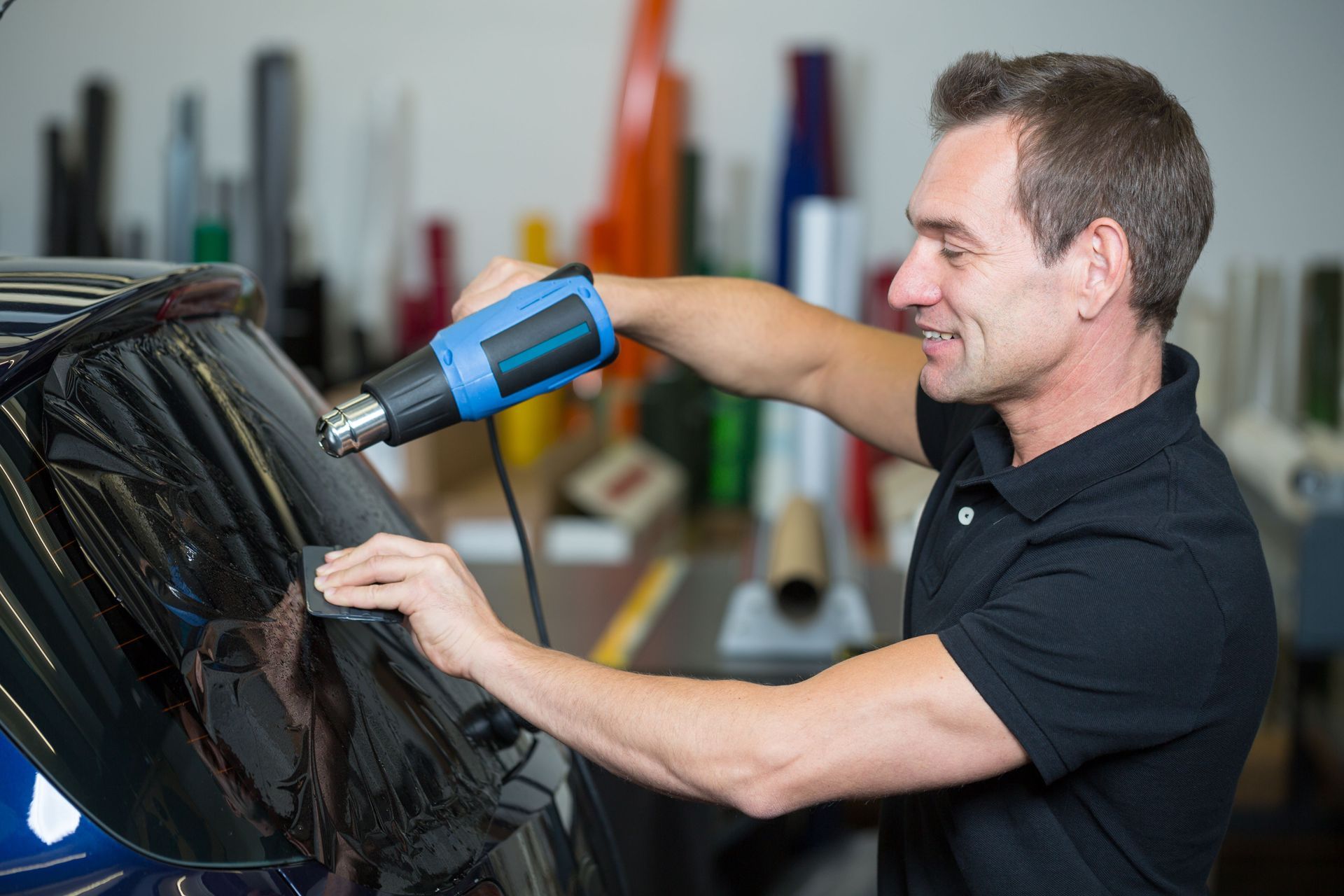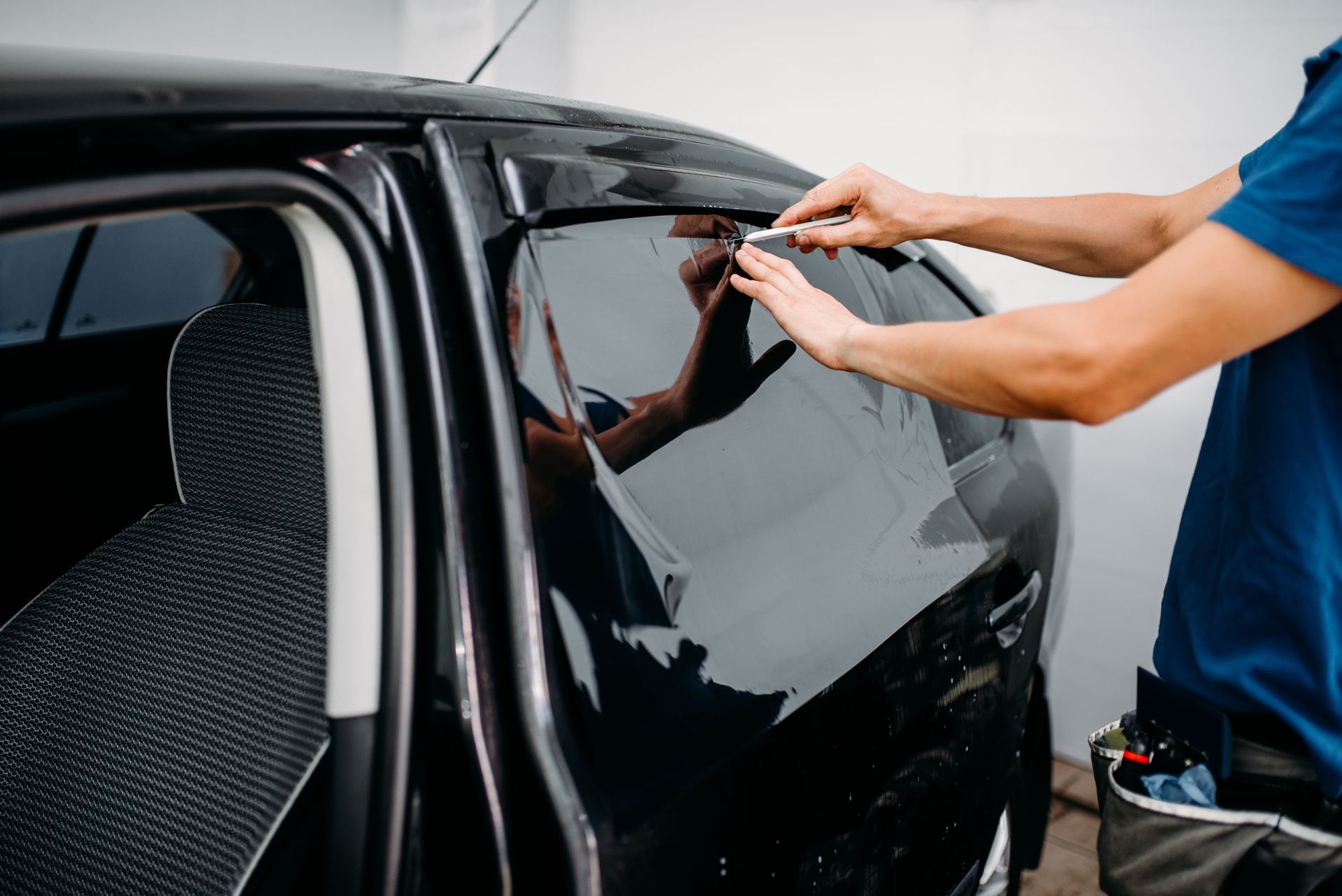October 31, 2025
Florida is known for its sunny skies, scenic drives, and vibrant communities. For car owners in the Sunshine State, enjoying those bright days comes with some important considerations, especially when it comes to window tinting. Tinting your vehicle’s windows is not only about style; it also provides practical benefits such as reducing glare, protecting the interior from UV damage, and enhancing privacy. However, Florida has specific rules that govern how much tint you can legally apply to your vehicle’s windows.
Understanding these rules is essential to avoid fines, ensure safety, and enjoy the full benefits of tinted windows without complications. This guide will explore the state’s regulations, the different types of window tints available, the practical advantages of tinting, and tips for ensuring your car remains both stylish and compliant.
Window Tinting Laws
Window tinting laws in Florida are designed to balance vehicle customization with public safety. The state sets strict limits on how dark or reflective your windows can be. According to TintWiz, front side sedan windows in Florida must allow at least 28% of light to pass through. This means that while you can darken your windows for privacy or comfort, they must still let in enough natural light to ensure visibility for both the driver and law enforcement officers. These regulations are in place to create safer driving conditions and promote consistency across all vehicles on the road.
Florida law distinguishes between different vehicle windows. Front side windows must meet the minimum light transmission requirement, while rear side and back windows allow for more flexibility. SUVs and vans have slightly different regulations for rear windows, but the overarching goal is to prevent excessive darkness that could hinder visibility and compromise safety. Compliance with these rules is essential not only to avoid citations but also to ensure that your vehicle meets safety standards during inspections or traffic stops.
Window Tinting Types
When considering window tinting, it is important to know that not all films are created equal. Dyed films are often the most affordable, providing a darkened appearance by absorbing sunlight, though they may fade over time and are not as durable as other options. Metallic films, on the other hand, use tiny metallic particles to reflect heat and light, offering excellent sun protection but sometimes interfering with GPS signals and other electronics. Hybrid films combine dyed and metallic layers, striking a balance between heat reduction, glare protection, and durability. Ceramic films are premium options that block heat and UV rays more effectively than traditional films. These films are highly durable, non-reflective, and provide excellent performance without affecting visibility or signals.
It’s also important to consider the longevity and maintenance of each film type. Some films may require more careful cleaning or special products to prevent damage, while others are more resistant to fading, bubbling, or peeling over time. The climate and sun exposure in your area can also affect how each film performs, making durability a key factor in your decision. By weighing these practical considerations alongside appearance and legal compliance, you can select a film that not only enhances your vehicle’s look but also stands up to everyday use.
Window Tinting Benefits
The benefits of window tinting go far beyond aesthetics. One of the most significant advantages is protection from harmful ultraviolet rays. Prolonged exposure to UV rays can damage your skin and cause materials inside the car, such as leather, vinyl, and plastics, to fade and crack. Quality tints help block these harmful rays, extending the lifespan of your interior while keeping you safer on the road.
Heat reduction is another key benefit. Florida’s intense sun can make cars uncomfortably hot, especially during the summer months. Tinted windows help reduce interior temperatures by reflecting sunlight and preventing heat buildup. This makes driving more comfortable and reduces the strain on your vehicle’s air conditioning system. Tinted windows also minimize glare, enhance privacy, and can improve the overall aesthetic appeal of your car, providing both functional and visual benefits.
Tinted windows can also contribute to long-term cost savings. By protecting your interior from sun damage and reducing heat buildup, you can prevent premature fading or cracking of materials, which might otherwise require costly repairs or replacements. Additionally, the decreased reliance on air conditioning can slightly improve fuel efficiency, helping you save money over time while maintaining a more comfortable driving environment.
Professional Installation
Choosing the right professional for your window tinting project is as important as selecting the type of film. A skilled installer ensures that the tint is applied evenly, free of bubbles, and aligned correctly with your vehicle’s windows. Poorly installed tints not only look unprofessional but can peel or warp over time, potentially requiring costly replacements.
Experience and reputation are critical when selecting a shop. Positive reviews and a strong track record in tinting vehicles can provide confidence that the work will be done properly. Warranties often cover issues like peeling, bubbling, or discoloration, and an installer familiar with Florida’s window tinting laws will help ensure compliance.
Using high-quality films and professional installation guarantees results that are visually appealing and long-lasting.
It is also helpful to ask about the installation process and materials before committing to a shop. Understanding how long the installation will take, what type of film will be used, and any aftercare instructions can prevent surprises and ensure that the final result meets your expectations. A thorough installer will answer questions clearly and provide guidance on how to maintain the windows, giving you confidence in both the quality of the work and the longevity of the product.
Window Tinting Maintenance
Proper care and maintenance are essential to preserve the benefits of window tinting. While tinted windows are durable, they require careful attention to prevent scratches or other damage. Cleaning should be done with a soft cloth or microfiber towel and a mild, non-abrasive cleaner. Ammonia-based products should be avoided, as they can break down the adhesive over time.
Car owners should also exercise caution around tinted windows to prevent scratches or punctures. Following care instructions from your installer, including recommended cleaning intervals and protective products, helps maintain the film’s appearance and effectiveness. Avoiding extreme temperature changes and harsh heat sources also ensures the tint remains intact. With proper care, tinted windows can maintain their protective, aesthetic, and functional benefits for years.
Tinted windows in Florida are more than a cosmetic upgrade; they are a practical enhancement that provides safety, comfort, and protection for both drivers and passengers. Understanding the state’s legal requirements for front-side sedan windows ensures that drivers can enjoy tinted windows without risking fines or legal complications. Staying informed about these rules not only helps maintain compliance but also promotes safer and more enjoyable driving experiences throughout the Sunshine State.
Choosing the right type of film, hiring a professional installer, and maintaining the windows properly ensures long-lasting results that protect your vehicle and improve your driving experience. From reducing glare and heat to providing UV protection and added privacy, tinted windows are a valuable investment for any Florida car owner. With the right approach, drivers can enjoy a stylish, comfortable, and compliant ride throughout the Sunshine State. Ready to enhance your vehicle’s comfort, style, and protection? Contact The CarLab for professional window tinting services that meet Florida’s regulations and deliver flawless results.



